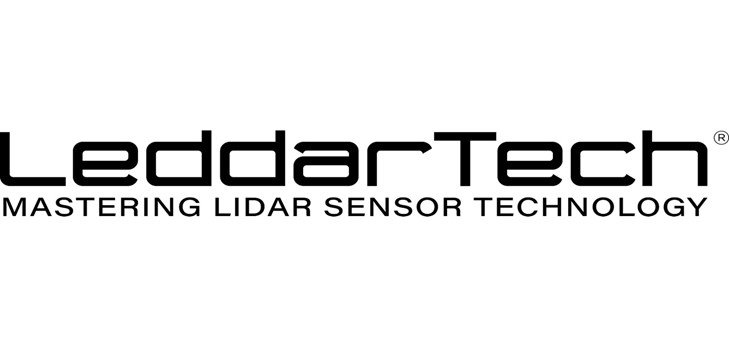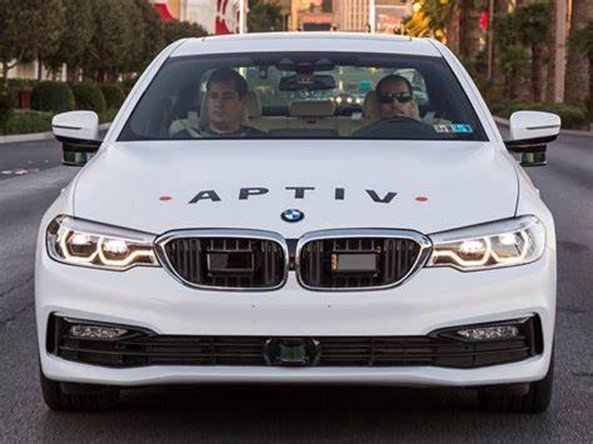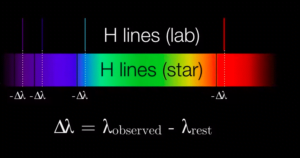Visualize yourself speeding up to go to your office one day, and the moment you lock the door of your workroom, you see several cars flecking the street. However, here is the crumble; these are not just simple direct aged cars, but driverless autonomous vehicles which can aviate their way through the highway as you busy working on that presentation you hoped to finish last night. Ooh yes! This imagination is almost coming into reality with automakers industries organizing to inaugurate their versions of the self-driving cars. Therefore, human beings will typically be the backseat driver then. At the heart of driverless technology, lidar (Light Detection and Ranging) a vehicle vision system determines the distance by elucidating a target using light and lasers as its initial detector; automotive sensors are what enhances self-driving cars to see. Globally, there’re 55 autonomous vehicles Lidar companies, and here is the list of 20 most interesting ones.
Waymo
Google secretly launched its self-driving car project in 2009. It used a refashioned Toyota Prius with its self-driverless technology and received a license to operate into Nevada states streets. In 2015, they attained the world’s first fully driverless car trip on public roads. These tests included the human driver at the backseat as a backup driver as a safety measure.
Argo Al
This is an independent firm that started in 2017. Unlike Waymo, however, Ford and VW don’t recognize Argo Al to produce its own car; instead, they want it to manufacture driverless cars for other companies. The exterior Argo is equipped with a combination of many sensors such as lidar and cameras. In this vehicle, lidar is used to identify objects’ distance, while cameras help in-depth perception.
General motors
The GM driverless vehicle unit, GM cruise has the world’s second-largest fleets of cars that are going through testing. The Company launched a semi-driverless supercruise in 2018 and its aggressively competing with Waymo.
Nissan
By 2016, Nissan had announced its first driverless car technology pro pilot. This was an ADAS (advanced driver assist system) that is easy to use. Currently, what they’re providing today is something different evolutionary. The new pro pilot 2.0 can provide a 3D mapping navigation and with its advanced detectors and cameras, it can recognize the pedestrian face.
Zoox
This is an Australian based autonomous company founded in 2014. It is developing the world’s first ground-up, fully driverless vehicle fleet and supports the ecosystem needed to bring this technology on the market. It aims at providing the next generation mobility services in urban environments.
Aptiv
The Company was previously known as Delphi, and it’s the world’s leading Company in providing electrical and electronic safety technology solution to self-driving and commercial vehicles markets. In 2018, Aptiv linked up with Lift to begin a Robo-taxi series in Las Vegas.
Baidu
This is a Chinese autonomous vehicle that represents an enormous opportunity in the coming years. It has a committed autonomous driving unit(ADU) based in Beijing and Silicon valley that takes care of the companies driverless cars efforts.
Tesla
Tesla is among the early pioneers of and leaders of the driverless cars markets. The latter has well-advanced features of self-driving cars, and its autopilot provides only stop and go adaptive cruise control with automatic steering. In 2016, all its vehicles were built with autopilot software 2, a detector and computing package that will enable full self-driving.
Nuro
Nuro was started by two ex-Google engineers back in 2016. It’s working towards a driverless solution for the last-mile and local delivery duties. Besides, it aims to become the world’s best autonomous deliveries making millions of people have groceries and other goods dispatched by the vehicle instead of making several trips to the store.
nuTonomy
This Company was created by the former MIT Dr Karl Lagnemma and professor Emilio Frazzoli. Driverless cars startup nuTonomy has been getting autonomous vehicles on roads from Boston to Singapore, where it has been providing autonomous services since 2016. Additionally, it also partnered with Group PSA, the European car brand Peugeot SA owner to begin driverless cars in Singapore.
Quanergy
From real-time mapping to recording information as a reproductive 3D point cloud, its breakthrough lidar detectors are finding their way to the top position in the autonomous market.
Velodyne
It was founded in 1983; silicon valley-based Velodyne is a great pioneer in developing primary lidar sensors for industrial systems. The Company made headlines when Baidu and Ford committed to invest a considerable amount of money in the companies first funding round.
LeddarTech

LeddarTech Company is Canada based, and it has set itself apart from other lidar providers with its specific business approach. The Company provides a range of lidar-state detectors that are usually coupled with lidar platforms. Its products are used for driverless cars.
Innoviz
The Company was founded in 2016 and is Israel. Innoviz is usually integrated with perception software for magnified object sensing, tracking and classification with unrivalled angular resolution.
Luminar technologies
This Company develops long-range lidar detectors for an autonomous vehicle. It has two lidar sensors named Hydra used for several applications; Iris provides a slim designed roofline attached customized sensors.
Ouster
Ouster is a most significant developer for driverless vehicles, robotics, mapping and security. The Company offers OS1 mid-range detectors and OS2 long-range lidar sensors.
AEye
This is an advancing vision-based system for autonomous vehicles. The Company aims to offer system leverage solid-state MEMS-based and computer vision with deep learning software to support driverless cars.
Cepton
Cepton Company provides lidar-based 3D sensing solutions for self-driving applications. However, the Company claims that lidar systems provide high resolution and long-range images at a lower cost to enhance vehicles’ autonomy.
MicroVision
This Company develops a patented display and imaging technology called PicoP. It uses laser beams scanning technology and enhances OEMs’ customers to generate high-resolution miniature projection and 3D sensing and image capture solutions.
Continental
The AG commonly referred to as Continental is a Germany prominent manufacturing company specialized in brake systems, interior electronics, automotive safety and powertrain in the automotive transportation industry. Under the passenger car segment, the company provider’s 3D flash lidar in the ADAS business and the safety business unit.
My final thoughts
Business models transform with time, sometimes due to the shift in the market, and it can also be because of advancement in technology, resulting in the growth of new exciting trends. Due to the world’s technological storm, it’s prudent for autonomous industries to generate lidar sensors. Besides, this is expected to grow substantially, creating more opportunities for vendors. Lidar detector technology is sure to be essential in the driverless systems offered to the public. The near future of autonomous driving has companies of all kind rushing to create the automotive lidar sensors systems and other technologies that will put them at the forefront of the industry.






